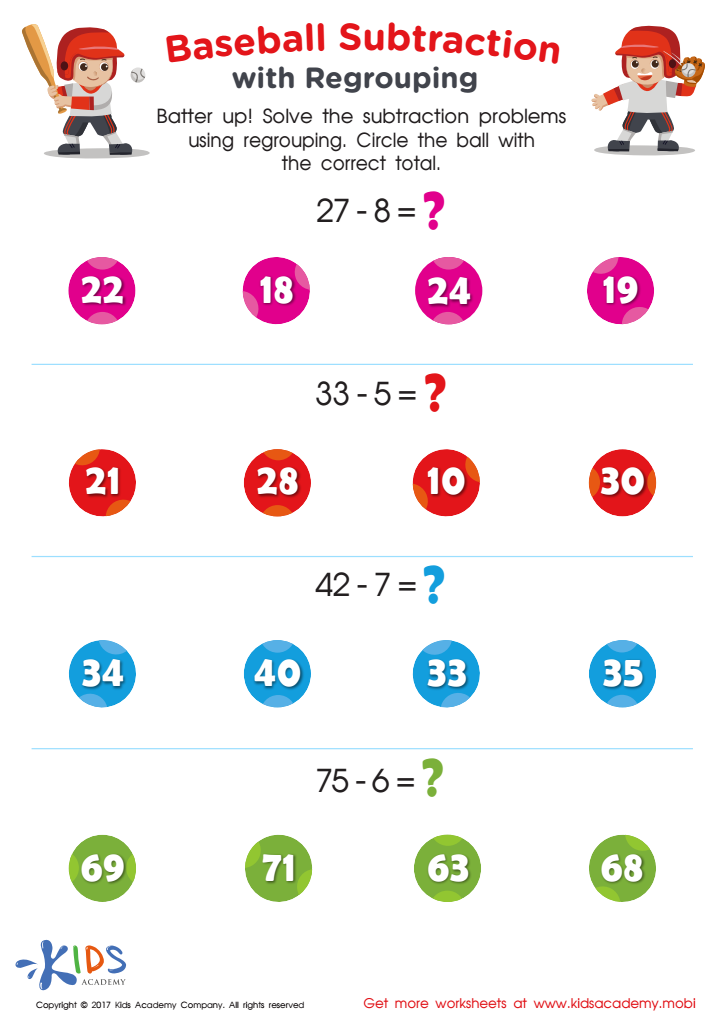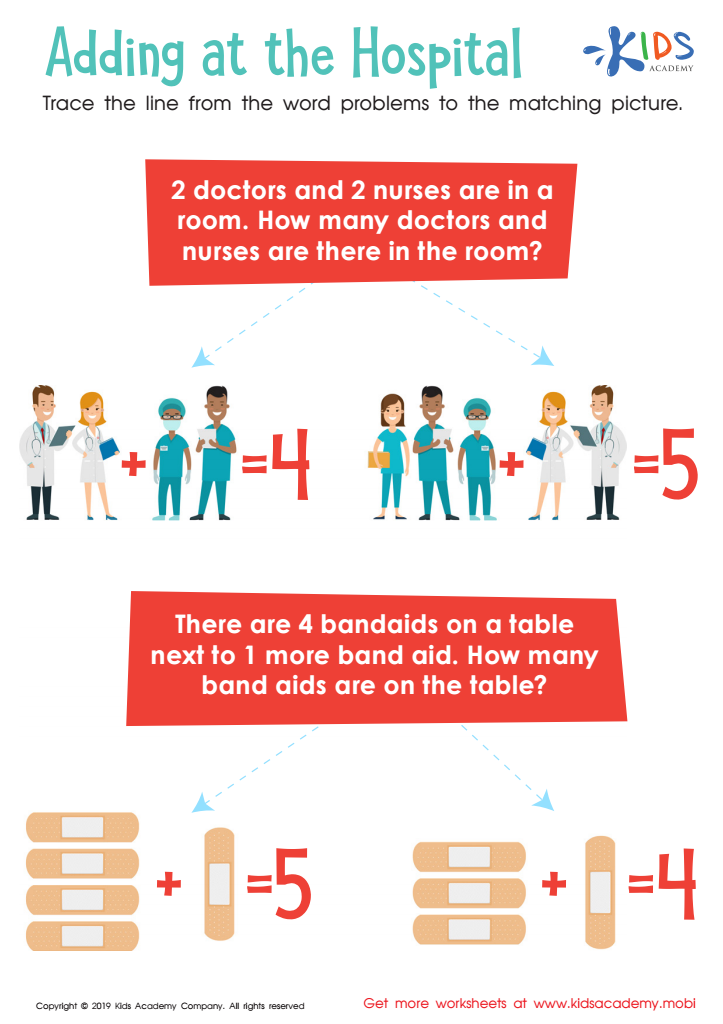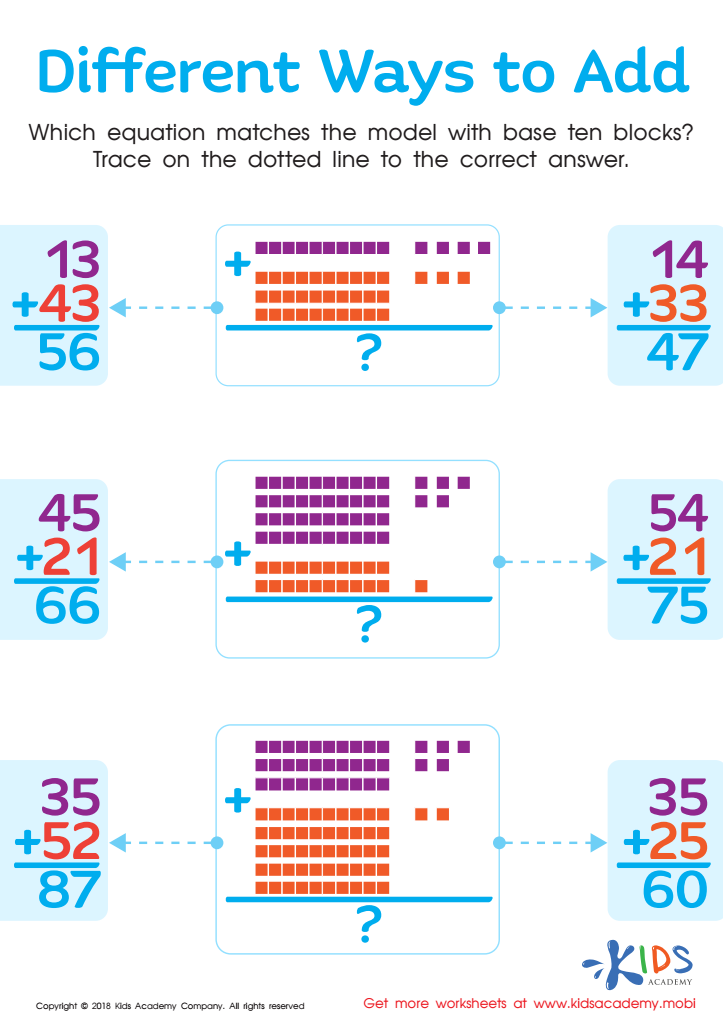Mental math practice Normal Addition & Subtraction Worksheets for Ages 3-7
5 filtered results
-
From - To
Enhance your child's math skills with our engaging Mental Math Practice Worksheets for Normal Addition and Subtraction, designed specifically for ages 3-7. These worksheets provide a fun and effective way to help young learners develop their numeracy skills through mental calculation. Featuring age-appropriate problems that encourage critical thinking, our resources foster a solid foundation in core math concepts. With colorful designs and interactive elements, children will remain motivated and interested in their learning journey. Empower your little ones to master addition and subtraction while building confidence in their abilities. Explore our collection today and watch their math skills flourish!


Subtraction With Regrouping for 2nd Grade Worksheet


7 Continents and 7 Seas Worksheet


Adding at the Hospital Worksheet


Tricky Problems Worksheet: Part 2


Different Ways to Add Worksheet
Mental math practice, particularly for normal addition and subtraction, is crucial for children aged 3-7, and both parents and teachers should prioritize it. At this developmental stage, children are forming foundational cognitive skills that will influence their future academic success. Engaging in mental math helps children enhance their problem-solving abilities, improves their numerical fluency, and builds confidence in their mathematical skills.
Practicing addition and subtraction mentally fosters a deep understanding of number relationships and promotes early algebraic thinking. Through regular exercises, children learn to visualize numbers and develop strategies for solving problems quickly, which can significantly aid in their overall academic progress.
Moreover, mental math encourages critical thinking and resilience, as children learn to approach problems from various angles. It can also boost their concentration and memory performance. Engaging in mental math can be both fun and interactive with games and everyday situations, making learning a joyful experience. Overall, prioritizing mental math practice sets the stage for future math courses and prepares children not only for standardized tests but for real-life applications of math. By focusing on these early skills, parents and teachers are investing in children’s long-term mathematical success and overall cognitive development.

 Assign to My Students
Assign to My Students
















